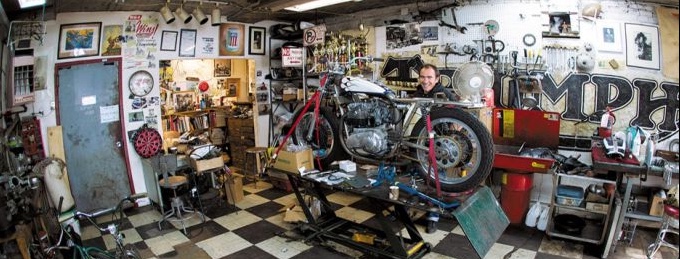To start at the beginning of the story go here.
Sophie laughed then, laughed at the danger and desperation, at the plan that lacked so many details it could hardly be called a plan. I couldn’t help but wonder in that moment, not for the first time, if Verdicchio’s blade had excised something from her, had cut out some piece of self-preservation that she didn’t really miss anyway.
Her laugh still made me smile, though. That made it easier to think. I pointed at the map and asked, “Can you make a copy of this?”
“When it is finished, sì.”
“OK, do that.” I pulled Rotella’s card out of my pocket and showed it to Sophie. “This number belongs to a cop already investigating Mitnick.” I set it down on the table and tapped it with a forefinger, “Might come in handy.” Sophie took the card long enough to scrawl down its information on one of the scraps of paper lying around. I put it back in my pocket.
I stood up again, reconsidering the offer of food despite having just eaten breakfast. Instead I thought out loud, “I need to get ahold of the Idiots and see what kind of plan they have for Nika. We need to figure out how to get her and Lanzo out of town once she’s out from under Mitnick.” Again, I considered all of the unknown variables, the biggest one being Nika herself.
I looked at Sophie. “What if she doesn’t want to leave?”
“She is a kept woman,” Sophie said, repeating what she had learned at Mitnick’s party.
“Yeah, but people in abusive relationships don’t always want out.” I thought about Sophie and Verdicchio again and decided that was better left unmentioned.
Sophie reclined, giving this some thought. After a moment she shrugged and replied, “We shall see.” Watching her length relax along the couch, I remembered getting Nika out was a goal for Sophie, but it wasn’t the only goal. Sophie enjoyed killing monsters. We had that in common.
Instead, I tapped the map again and told her, “Next time you go out for this kind of recon, call Alon and have him drive you.” I wasn’t sure why that was an improvement over however Sophie had been getting around, but I decided I trusted Alon. Trying to find an explanation for Sophie, I hit on my own choice of idiom. “Può trattenere l’acqua in bocca,” I said and winked. He can keep a secret.
Sophie smiled, either happy at how my Italian had advanced or at the prospect of seeing Alon again. Either way, she put her glasses back on and returned to relaying notes onto her map.
I couldn’t remember if I was supposed to work at the casino that evening, then recalled Sartre’s words and decided that, at least for tonight, I didn’t care. I chose a nap instead. I laid down there and slept, lulled by the occasional humming from Sophie.
I was kept mostly awake, though, by the fact that I didn’t know what I was going to do next. Eventually, I heard Sophie get up and fix herself some food, then come into the bedroom to plant a kiss on my forehead and leave. This early in the day, she wouldn’t be able to call Alon, but the trams were running and those were probably just as safe. Eventually, unable to sleep, I got up and went into the kitchen, so unaccustomed to seeing daylight that I was surprised at it streaming through the windows. I made myself a sandwich, consumed it in slow bites with a cold cup of coffee and thought about what to do next.
The Factory seemed to be a kind of neutral territory, owned by Sartre but a playground for Mitnick’s crew as well. As the Idiots’ stomping grounds, it seemed the next logical place to go. It was still too early for the nightclub, though, so I tracked my thoughts back to Lanzo’s uncle with the moto shop. That might be a place to start. It was on the way to the Factory anyway.
The tram I took out west stopped at Grenoble Station, one of the facilities that formed the periphérique between the luxury of Old Town and the outer banlieues beyond the river. The tram didn’t cross into the outer neighborhood, instead dumping all of the passengers into an open square where the gendarmerie watch everyone through the visors of their black helmets, scanning for the next separatist, terrorist, or bomber. I hunched into the trench coat and hustled through, trying to avoid any attention.
Grenoble might have been less maintained and seedier than Old Town, but I guess that was part of its charm. It was still early enough in the day that tourists weren’t afraid of the neighborhood yet, despite the ubiquitous graffiti and numerous shuttered shops. I stopped in the convenience store where the Sikh, with his brightly colored turban, ruled over his tiny domain. I wasn’t sure what kind of cigarettes Moreau smoked, but I picked up a pack of Marlboros. While he might prefer a brand like Gauloises, I hadn’t met a Frenchman yet that would turn down a visit to cowboy country.
I found ‘Petit Motos Moreau’ just as I had left it, two stories of crumbling cinderblock surrounded by scooters in various states of repair or salvage. One of the twin roll-up doors was open, so I waited by the corner and listened and watched. A few tourists, in pairs or groups, went by me, picking up the pace as they did, reminded by my presence that this wasn’t the best part of town.
After a time, when I was certain that all I heard was the faint tinkering of tools against a backdrop of the city’s usual murmurings, I strolled over to the open garage door. At a workbench on the opposite side of the entrance, not far from the back door, stood Moreau, still wearing grease-stained coveralls.
I hovered in the threshold and cleared my throat. Moreau, his hands still not visible, turned his head to me, one bloodshot eye appraising me. I said, “Rebonjour,” and, seeing he didn’t have a cigarette lit, pulled out the pack of Marlboros. I packed them lightly, making a display of it.
Moreau rotated to face me, leaning on the bench with his hands behind him. Whatever else his hard life hinted at, Moreau apparently didn’t drink enough to blot out the memory of me, his suspicion bordering on hostility. Or maybe I just bring that out in people.
Uncertain of how to proceed, I asked a formal French, “How are you?”
“I was good.” He gestured with a hand that I was happy to see come around from the bench with nothing more than a dirty rag. “Then you appeared.”
I attempted a grin but only managed a grimace. I flipped the lid of the Marlboros open and offered the box, the cigarettes in a lined and orderly formation. To his credit, Moreau only glanced at the weak attempt at a bribe with animosity, then said to me, “You have something in need of repair?” He walked over to a Honda he had mostly disassembled on the other side of the room. I noted it wasn’t far from the back exit, but I didn’t think Moreau’s age and physical maladies would let him get far.
He pointed at the scooter. “These are not really built for a man of your,” he waved from it to me, “mass.”
I kept the cigarettes out, but let my hand drop. “I’m still looking for Lanzo.”
“I told you what I know.” I tried to remember how many days it had been since we spoke and found I couldn’t. A week? Two? No, that last one was too long. Either way, not much had changed for Moreau in that time.
“Where is he now?”
Moreau’s expression changed to something that I thought was belligerence, but I realized it was just contempt. He eyed me as if I were stupid and repeated, “I told you what I know.”
I fiddled with the cigarette pack and breathed deeply, feeling my feet continue to hurt. I tried to fake some patience with a, “I told you – I’m trying to help him. He might be in trouble with the Night Governor.” I used the same implied threat that I had in our last conversation, hoping that it would work again.
This time, though, Moreau replied, “Sartre takes no issue with the boy.” The statement left me wondering how well-connected this repairman was. And if he was that mobbed up, what was he doing working in a scooter shop?
“Sartre takes no issue with him, but you know there was trouble at the casino.” With my opening gambit failed, I veered closer to the truth. Remembering the old man’s bitter laughter from our last encounter, I added, “You know he’s mixed up with the girl.”
That was enough to cause Moreau to sigh, shifting from knee to knee, one or the other unable to take his weight for too long. He raised his eyes to further appraise me, then slapped his rag against a thigh and limped over. Without a word, he gestured for the cigarettes and plucked one from the proffered pack. He put it between his lips and hitched back towards the scooter. Considering the reliable simplicity of its mechanisms, he reflected on the complexities of his nephew’s situation.
Whatever he was about to say was cut off by a loud thud, like someone had kicked a child out of a bunk bed. I glanced towards the ceiling, which was little more than a series of wooden planks separating the first and second floors of the cinderblock shop. There were other sounds, but they were quiet phantoms of the first one.
I lowered my eyes to Moreau. “You live alone?”
To read the previous chapter, go here.
To read a polished and published prequel to this story go here.
Related Posts
The Contract Next Post:
Video Killed the Algorithm Star


























